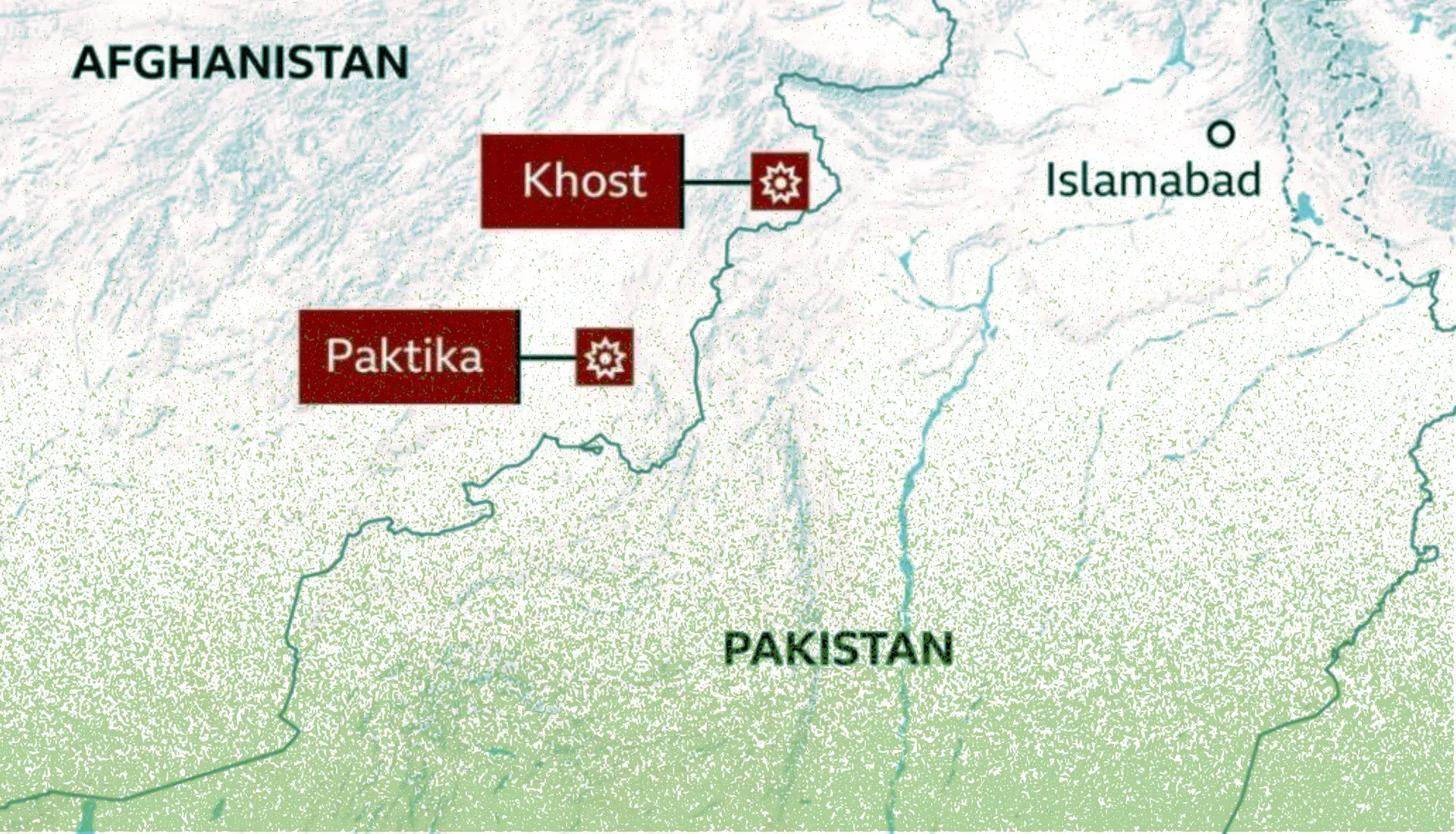Escalating tensions along the Afghanistan-Pakistan border reached a new peak this week with Pakistan airstrikes targeting Tehreek-e-Taliban Pakistan (TTP) hideouts in Afghanistan’s Khost and Paktika provinces.
Beyond a tit-for-tat response, Pakistan’s airstrikes were a fiery inscription across the Afghan night sky. A message, writ in the language of bombs, declaring that security and sovereignty are inviolable.
These strikes come in the wake of a suicide bombing against a Pakistani military post in North Waziristan, highlighting Pakistan’s resolve to respond robustly to cross-border threats. Notably, these strikes don’t come unexpectedly as similar action has been taken against the TTP in April 2022, and the recent Iranian aggression in January 2024 has also been responded in the same vein.
Also Read: After the Airstrikes
However, beyond these immediate actions, a deeper analysis reveals a complex web of regional dynamics, strategic calculations, and diplomatic maneuvers that are shaping the contours of this conflict. Recent revelations hint at the clandestine maneuvers of external actors, using third countries as conduits for their covert operations.
While direct accusations are eschewed, evidence suggests a web of support flowing through the porous borders of Afghanistan and Iran. In Afghanistan, the TTP finds sanctuary, nurtured by the instability that plagues the war-torn nation. Similarly, in the rugged terrain of Iran, Baloch separatists find succor, fueling unrest within Pakistan’s borders.
![A glimpse of Balochistan threat matrix in context of Pakistan strikes into Afghanistan and Iran [Infographic Credits: SAT]](https://southasiatimes.org/wp-content/uploads/2024/03/SAT-Infovision-09-1.webp)
Also Read: Behind the Unprovoked Iranian Strike
Pakistan’s response is both measured and resolute. Airstrikes, backed by incontrovertible evidence of cross-border terrorism, serve as a deterrent against further incursions. Yet, beyond the immediate theater of conflict lies a deeper truth—a truth that implicates not only the foot soldiers of terror but also the puppeteers who pull the strings from afar.
For Pakistan, security and sovereignty are paramount. The airstrikes serve as a robust response to cross-border threats and a reaffirmation of Islamabad’s resolve to protect its people and military interests. Undertaken per international law, they also seek to disrupt the networks that threaten the country’s security. However, the effectiveness of these measures is contingent upon broader regional cooperation and a concerted effort to address the root causes of terrorism.
With tensions simmering on multiple fronts, including potential provocations from India, Pakistan’s proactive approach sends a clear signal to regional actors: any threat to its security will be met with swift and decisive action.
Moreover, Pakistan’s actions are not isolated incidents but part of a broader strategy to address long-standing concerns over terrorist sanctuaries in Afghanistan. The repeated strikes underscore Islamabad’s frustration with the Afghan Taliban’s perceived tolerance of militant groups operating within its borders. President Asif Ali Zardari’s unequivocal statement underscores Islamabad’s determination to confront any incursions into its territory, irrespective of the perpetrators’ identities or origins. This stance reflects a shift away from the previous policy of negotiation with terrorist elements, signaling a more aggressive posture in dealing with security threats.
However, while the likelihood of a full-blown conflict remains low, the situation remains precarious, particularly for civilians caught in the crossfire. Pakistan’s retaliatory airstrikes serve as a political assertion of its commitment to protect its people and military interests. Yet, the risk of unintended casualties and further destabilization looms large, especially considering the porous nature of the Pakistan-Afghanistan border.
At the heart of these tensions lies the intricate relationship between the Afghan Taliban and the Pakistani establishment. Historically viewed as a strategic asset, the Afghan Taliban’s ascent to power has complicated Pakistan’s calculus. Despite shared ideological affinities, disagreements over support and recognition have strained ties between Islamabad and Kabul. Moreover, the Afghan Taliban’s tacit support for groups like the TTP poses a direct threat to Pakistan’s security establishment, further exacerbating bilateral tensions.
![Representation of major terrorist organizations in Central and South Asia with potential sanctuaries in Afghanistan [Infographic Credits: SAT]](https://southasiatimes.org/wp-content/uploads/2024/03/Twitter-01-01-1-1-scaled.webp)
The Afghan Taliban’s purported disapproval of attacks within Pakistan rings hollow in the face of mounting evidence linking them to transnational terrorist groups. While Kabul condemns Pakistan’s airstrikes as violations of sovereignty, Islamabad maintains that it is merely defending itself against external threats emanating from Afghan soil. This blame game underscores the broader geopolitical rivalry between the two neighbors, with each side vying for influence and control over the volatile border region.
Pakistan’s response extends beyond military action, encompassing diplomatic and economic pressures aimed at forcing the Afghan Taliban to reassess its stance. The forced repatriation of Afghan refugees from Pakistan signals Islamabad’s intent to exert maximum pressure on Kabul, leveraging its leverage to compel cooperation in combating terrorism.
Hence, potentially employing strikes, to internationalize Pakistan’s concerns regarding terrorist safe havens in Afghanistan, Pakistan also aims to galvanize the international community into adopting a more proactive approach towards engaging with the Afghan Taliban and addressing the root causes of terrorism in the region. In the event of non-compliance by the Afghan Taliban, the repercussions could extend beyond regional security. Pakistan’s security-centric blueprint emphasizes the need for cooperation and compliance from all stakeholders. Should the Afghan Taliban fail to align with Pakistan’s security imperatives, the ramifications could reverberate across the region, further destabilizing an already fragile security environment.
Furthermore, Pakistan’s assertive posture may prompt a recalibration of international engagement with the Afghan Taliban. Despite numerous diplomatic initiatives, the Afghan Taliban’s representation in international forums remains limited, hampering efforts to address pressing security concerns. By taking decisive action, Pakistan seeks to compel the international community to reassess its approach and prioritize engagement with the Afghan Taliban on counterterrorism efforts.
In this context, Pakistan’s airstrikes serve as a catalyst for regional and international cooperation against terrorism. By demonstrating its commitment to safeguarding security and sovereignty, Pakistan aims to spur collective action to address the scourge of terrorism in the region. However, the path forward remains fraught with challenges, requiring sustained dialogue, cooperation, and diplomatic engagement to achieve lasting peace and stability.
In conclusion, Pakistan’s assertive response to terrorism reflects its unwavering commitment to security and sovereignty. By targeting TTP hideouts in Afghanistan, Islamabad sends a clear message to regional actors and the international community: any threat to its security will be met with resolute action. As tensions persist and security concerns mount, Pakistan’s proactive approach underscores the urgency of collective action to combat terrorism and promote regional stability.
Your go-to editorial hub for policy perspectives and informed analysis on pressing regional and global issues.


![A glimpse of Balochistan threat matrix in context of Pakistan strikes into Afghanistan and Iran [Infographic Credits: SAT]](context.core.image.imageCurrentSrc)
![A glimpse of Balochistan threat matrix in context of Pakistan strikes into Afghanistan and Iran [Infographic Credits: SAT]](selectors.core.image.enlargedImgSrc)



Add a Comment